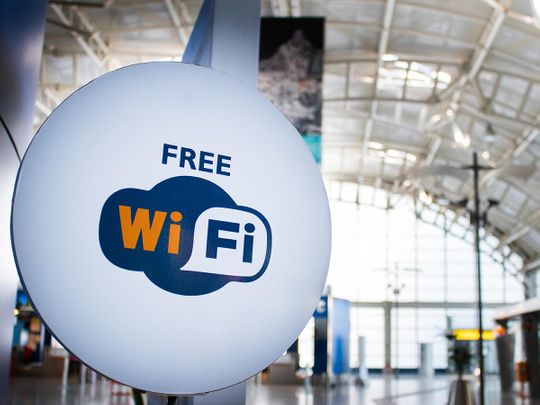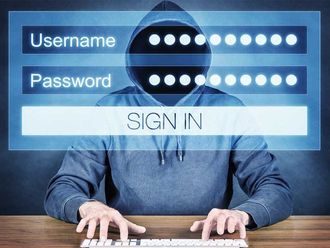
You’ve just stepped into a coffee shop to take a break. What better than getting some free WiFi along with your cappuccino? But before you ask the staff for their WiFi password, remember that public networks are notoriously unsafe, with hackers using the open network to access your confidential details, whether it is your bank account number or your social media passwords.
The UAE’s Cyber Security Council recently raised awareness on the use of public WiFi and has a simple advice that you should remember: Always assume your data is being monitored when connected to public WiFi networks.
“Whether you are entering your login credentials, putting in your credit card details or sharing sensitive data, cyber criminals can monitor every activity you do and steal your information resulting in significant security risks like compromised privacy, exposure to malware and cyberattacks or impersonation that can lead to identity theft,” the council said in an online post on August 27.
There are simple ways in which you can protect yourself, according to the council:
Prioritise security: Choose data over WiFi
If you are in a public place and need to access the internet, it is always advisable to use your mobile phone data. If that is not available, check if you can connect to a secure hotspot provided by a friend.
Also, use strong passwords to protect your mobile hotspot network, if you are providing it to a friend or acquaintance.
In case you do need to connect to a public WiFi network, follow these best practices:
Dos
Verify the legitimacy of public Wi-Fi networks before connecting to them. Make sure you are connecting to the WiFi network provided by the café or restaurant you are in, and not a similar looking network. This may be set up by hackers to encourage you to connect, giving them to access to your device. Check with the staff and reconfirm the network that you are connecting to is the right one.
Don'ts
Don't allow automatic connections to public Wi-Fi networks. While most phones nowadays only provide a notification on which WiFi networks are available, older phones may connect you to an open network, if you have not changed the WiFi settings.
Don't share sensitive data. Avoid making transactions or engaging in any activity that requires login using credentials. If you see a pop-up window, asking you to enter your email and password, beware.
Don't ignore warning messages about unsecured networks from your device. If you see such a message, it is advisable to disconnect from such networks, instead of risking your online credentials.
Protect your accounts. Refrain from changing passwords while on public Wi-Fi.












